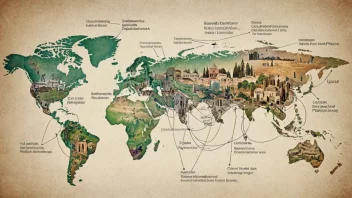Understanding Scientific Literacy
Scientific literacy refers to the ability to understand, interpret, and engage with scientific concepts and processes. In a world increasingly driven by science and technology, fostering scientific literacy is crucial for individuals and society as a whole. This article explores the top five reasons why scientific literacy is essential in today's society.
1. Informed Decision-Making
Scientific literacy empowers individuals to make informed decisions about health, environment, and technology.
Health Choices
With the rise of misinformation, particularly regarding health issues, understanding scientific principles can help people make better choices about their well-being.
Environmental Awareness
Scientific knowledge allows individuals to comprehend environmental issues, enabling them to take action in their communities.
2. Critical Thinking Skills
Science promotes critical thinking and problem-solving skills, essential for navigating complex issues.
Evaluating Information
In an age of information overload, scientific literacy helps individuals discern credible sources from unreliable ones.
Analytical Skills
Understanding scientific methods encourages individuals to analyze data and draw conclusions based on evidence.
3. Participation in Democracy
Scientific literacy is vital for active participation in democratic processes.
Informed Voting
Voters equipped with scientific knowledge can evaluate policies and candidates based on their understanding of science-related issues.
Advocacy
Citizens who are scientifically literate can advocate for policies that promote public good, such as climate action or public health initiatives.
4. Economic Development
A scientifically literate workforce drives innovation and economic growth.
STEM Careers
As economies evolve, the demand for skilled workers in science, technology, engineering, and mathematics (STEM) fields increases.
Entrepreneurship
Scientific knowledge fosters creativity and innovation, leading to new products and services that can boost the economy.
5. Global Challenges
Many of today’s pressing global challenges, such as climate change and pandemics, require a scientifically literate populace.
Collaborative Solutions
Understanding scientific principles can promote collaboration across borders to address global issues.
Future Preparedness
Scientific literacy prepares individuals to tackle future challenges by equipping them with the skills to adapt and innovate.
In conclusion, fostering scientific literacy is essential for informed decision-making, critical thinking, active participation in democracy, economic development, and addressing global challenges. By prioritizing scientific education and engagement, we can build a more informed and resilient society.






